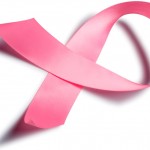 A vaccine that can prevent breast cancer returning has been developed by Australian scientists and could be on the market within five to ten years.
A vaccine that can prevent breast cancer returning has been developed by Australian scientists and could be on the market within five to ten years.
Trials of the vaccine in 31 women have shown it slashes the rate of breast cancer returning from 60 to just 12 per cent over a 15-year period.
One of the scientists behind the breakthrough, Burnet Institute Professor Ian McKenzie, hopes that one day every woman will get the vaccine to prevent breast cancer.
“This is my dream. The matter is harmless, why not inject it in all young women to protect them from cancer?” he said.
The revolutionary vaccine, which uses the body’s own immune system to fight off cancer, could also be useful in treating and preventing pancreatic, ovarian, colon and lung cancer.
The team behind the discovery identified a protein called mucin 1 that is different on cancer cells than normal cells. They then developed a sugar polymer, mannan, from baker’s yeast that was able to bind to this protein and attached a cancer antigen onto it.
When it is injected into the body it prompts the body’s immune system to fight cancer cells.
Ninety per cent of breast cancers carry the mucin 1 protein targeted by the vaccine and it is also present in between 60-90 per cent of many other types of cancer.
Sixteen women who had been treated for early breast cancer were injected with the vaccine in the mid-1990s and another 15 were given a placebo.
Fifteen years later nine of the patients who received the placebo had seen their cancer return while only two women who received the vaccine had a recurrence.
And the cancer took much longer to return in the women who had the vaccine — 118 months after their first surgery for the two vaccinated women, compared to 65 months for those on the placebo.
Unlike many cancer medicines this treatment does not require lengthy infusions.
It is delivered in much the same way as a childhood vaccine and the only side effects from the original trial were soreness and swelling at the injection site, Professor McKenzie said.
The women in the trial received an injection every two weeks for three months and received two boosters at six and nine months when the treatment ceased.
Breast cancer is the most common cancer in Australian women with around 14,000 new cases a year and one in every eight women will develop the cancer by age 85.
Once a woman develops metastatic or secondary breast cancer she has an expected five year survival rate of just 40 per cent.
Dr Clement Leong, whose Australian company Ascend Biopharmaceuticals has refined the vaccine, says this is why it is first being trialled on women who already have breast cancer.
While the initial trial involved 31 women with early stage breast cancer a second trial of about 50 women being planned will involve women with metastatic cancer to see if it will work for them.
Ascend Pharmaceuticals is looking for funding to run the second trial before proceeding to a full blown clinical trial.
Professor McKenzie laments that the vaccine could already be on the market if there had been funding made available a decade ago.
Source: http://www.news.com.au

















